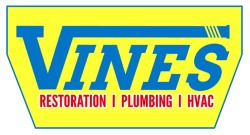The 4 Main Types of Water Heaters
Your home’s water heater is one of the main components of your plumbing system, and it works to provide hot water to all of the faucets and other water-using appliances in your home. There are several different types of water heaters available, each of which operates in a different manner to perform the same function.
Understanding the differences in each type of water heater and what they have to offer your home’s plumbing can help you figure out which variant is the right choice for your plumbing needs.
CONVENTIONAL WATER HEATERS
Conventional water heaters use a large storage tank with an installed heating element to keep a supply of hot water at a constant temperature, able to be used at any time. They are the most affordable type of water heater on the market and can provide hot water to multiple sources at once.
However, conventional water heaters do require time to recharge once all of your hot water has been used. This can be offset by installing a larger tank, but that will take up more space within your home. Conventional water heaters are also not very energy efficient and can drive up your monthly electrical bills.
TANKLESS WATER HEATERS
As their name would suggest, tankless water heaters do not have a large storage tank to hold hot water in. Instead, they heat water up on demand. This means that they will not have to constantly cycle on and off to maintain a supply of hot water, which can save you money on your energy bills each month.
Further, their lack of a tank means that they take up much less room, which makes them ideal for smaller houses and apartments that don’t have the storage space for a conventional water heater.
However, tankless water heaters do represent a higher initial investment than conventional water heaters do, which means that they won’t be able to fit into every budget. Further, the fact that they heat water on demand means that they can have issues supplying hot water to multiple faucets or appliances at once, which can limit their effectiveness in larger homes.
SOLAR WATER HEATERS
Solar water heaters are designed to save you even more energy than tankless water heaters. Solar heaters use solar panels installed outside or on top of your home to generate power which then heats water in a conventional hot water storage tank.
This method of heating water can eliminate – or at the very least severely reduce – your energy bills each month.
However, solar water heaters are extremely expensive compared to other variants, as they require their own infrastructure to be installed in the form of solar panels and specialized electrical equipment. They also take up a great deal of space both within and outside of your home, and they require constant maintenance to ensure that the solar panels are kept in good condition.
There’s also the obvious downside that solar water heaters are only well-suited for consistently sunny climates; colder and cloudy areas just won’t generate enough power to provide an adequate amount of hot water.
HEAT PUMP WATER HEATERS
Heat pump water heaters work by moving heat from outside of your home into the hot water storage tank and don’t actually make use of a heating element to heat up water. This makes them extremely energy efficient and more reliable than solar water heaters.
However, heat pump water heaters work fairly slowly and are only well-suited for climates that do not have cold winters. While they may be energy efficient, they can have trouble heating up large quantities of water. Because of this, they are usually installed as hybrid units so that a conventional heating element or tankless water heater can take over when they are not able to generate enough heat.
For any questions that you may have about your home’s water heater or if you have any other plumbing concerns, please feel free to contact us at Vines Restoration Plumbing HVAC.

